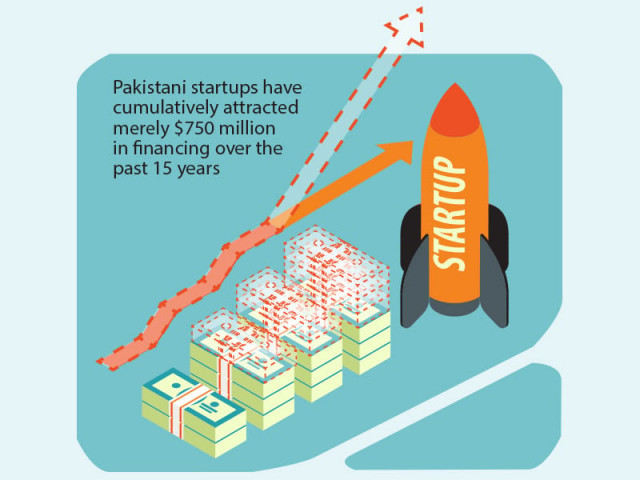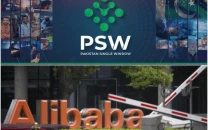Startups struggle for funding
Attract only $750m in financing over 15 years despite huge potential

Pakistani startups have cumulatively attracted only $750 million in financing over the past 15 years, a modest amount considering the country's vast talent and high rate of technology adoption. This gap highlights the significant challenges these startups face in scaling their businesses into full-fledged commercial entities.
One reason for the low funding availability is the absence of a standardised definition for small-scale, tech-driven entrepreneurs (startups) in Pakistan. Other deterrents include the country's economic risks. Despite these obstacles, the rate of success and failure for Pakistani startups mirrors global patterns, with only about 10% advancing to the commercial level and approximately 90% shutting down within their first two years. At the Pakistan Startup Summit 2024, organised by the Securities and Exchange Commission of Pakistan (SECP), Telenor Microfinance Bank (easypaisa) Founder Nadeem Hussain noted that Pakistan's startup ecosystem has a relatively brief 15-year history. He pointed out that the $750 million raised during this period "is not a great number," underscoring the mismatch between Pakistan's potential and the capital required to propel startups toward commercial success.
Hussain questioned why Pakistan's startups have struggled to secure adequate funding despite a large youth population, high mobile penetration, and a strong demand for improved customer experiences. He attributed the issue partly to global economic constraints and Pakistan's economic risk factors. Additionally, he cited international investors' bias, saying they are unlikely to invest in Pakistan unless they see substantial opportunities.
Hussain, who also invests in and funds startups, noted that nearly 95% of the $750 million was raised at the seed and pre-seed stages. Only a handful of startups have progressed to advanced funding, with around five or six securing Series A funding and just one reaching Series B in the past 15 years. Furthermore, only three startups, including Tameer Bank, Daraz, and a software company, have managed successful exits by selling their businesses. In response to the challenges, Hussain suggested that commercial banks should be mandated to allocate a portion of their earnings from government securities (such as T-bills) to startup financing if they are unable to extend depositors' funds to high-risk startups.
In a recorded video address, Finance and Revenue Minister Muhammad Aurangzeb described startups as "game changers" in spurring economic activity. He highlighted the potential of startups to play a pivotal role in sustainable growth, digitalisation, and scaling economic opportunities across Pakistan. Aurangzeb pointed out that startups could accelerate financial inclusion and provide tech-driven solutions to serve the country's unbanked population.
The minister also urged banks to be active participants in building a supportive ecosystem for startups and helping them access the funding necessary for growth. He affirmed that the government's role is to provide a stable policy framework, while the private sector should lead economic advancement. Aurangzeb commended the SECP for its progressive regulatory measures, including the Regulatory Sandbox and streamlined company incorporation processes, which have been instrumental in fostering a more supportive environment for startups.
Sima Kamil, former Deputy Governor of the State Bank of Pakistan (SBP), addressed the limitations commercial banks face in funding startups, noting that depositors' money cannot be used for high-risk investments, particularly with a startup failure rate of about 90%. Additionally, banks have predominantly invested in T-bills, which has limited financing available for the private sector.
Kamil highlighted another fundamental issue: the lack of a standard startup definition. According to SBP, the maximum age of a startup is five years, whereas other organisations, including the Federal Board of Revenue (FBR), define it as up to 10 years, creating inconsistencies that hinder growth and funding. In his keynote address, SECP Chairman Akif Saeed acknowledged the crossroads faced by Pakistan's startup ecosystem, noting both the challenges and unprecedented opportunities. "Our goal at SECP is not merely to adapt to change but to drive it," he stated. "We aim to build systems that empower our innovators, ensuring a stable yet dynamic environment for growth."
Saeed highlighted SECP initiatives, such as the Regulatory Sandbox and LEAP, designed to establish Pakistan as a regional innovation hub. These programmes focus on unlocking potential in high-growth sectors like fintech and embedded finance, which can be instrumental in transforming the national economy and attracting further international interest.



















COMMENTS
Comments are moderated and generally will be posted if they are on-topic and not abusive.
For more information, please see our Comments FAQ